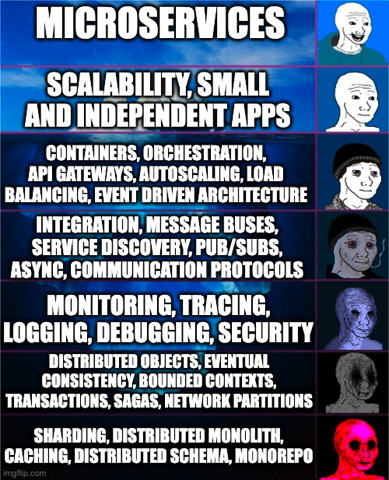This made me chuckle for a good 10 minutes!
At work we’re currently in the last layer of the iceberg with 35+ microservices, with ten different Kubernetes instances for different uses and a supported OnPrem version.
It is bit of a learning curve and we definitely have two “mono-services” that we’re actively braking down due to it accumulating seven years worth of different ideas and implementations.
I think currently I’m still heavily in favor in microservices in a project of our scale as it easily let’s us enhance, trash, or reimplement different areas of the app; but man is it a pain in the ass to manage sometimes 😂
